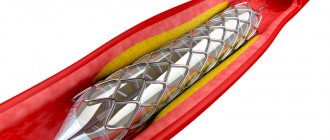Very often, conscripts wonder if they are being recruited into the army under pressure.
In some cases, arterial hypertension is a contraindication to military service. However, there is a possibility that the military medical commission at the military registration and enlistment office may be suspicious of such a diagnosis.
Let’s take a closer look at the pressure under which people are released from the army.
Find out if there are grounds for exemption from the army
Find out if you are fit for the army due to blood pressure or other diseases of the cardiovascular system with the help of our test.
Take the test ~ 1 minute
Can someone with hypertension be recruited for military service?
According to the requirements of the medical commission, hypertension is a non-applicable diagnosis. If a conscript with high blood pressure provides documentation that confirms this diagnosis, or undergoes an examination from the military registration and enlistment office, he will be assigned category “B” or “D”.
However, this only works perfectly in theory. In practice, conscripts who have problems with blood pressure can be recruited for military service. At the same time, calling a person or releasing him from service depends on several factors:
- the conscript must have supporting documentation that he contacted a specialist with such a diagnosis, and did so systematically. If a conscript says he has been diagnosed with high blood pressure, but does not have any doctor’s notes, he can be drafted into the army;
- it is necessary to take into account how stable the high blood pressure indicators are;
- there is written confirmation of the diagnosis from a specialist, which is indicated in the medical record. In fact, this is considered the most important factor, which will be relied upon in the process of passing the medical commission. Please note that the medical record must include a diagnosis of hypertension.
If the medical commission at the military registration and enlistment office confirms the fact of illness, the conscript has the right to be released from the army due to pressure. Point 43 in the Schedule of Diseases stipulates that for the first degree of hypertension, fitness category “B” is set and a military officer is issued.
— Alina Petrova, director of Povestok.Net
The situation is similar with the second stage of the disease - category “B” is assigned when issuing a military ID. Only if a conscript is diagnosed with stage 3 hypertension, he receives a military ID with category “D” and is exempt from conscription. Let us note that the conscription of people with such a diagnosis is prohibited not only in peacetime, but also during war.
It is worth emphasizing that arterial hypertension and essential hypertension are two different diagnoses. And there is a chance to be released from conscription only with a diagnosis of hypertension.
Practice states that if you are diagnosed with hypertension, you can be exempt from conscription only if it acts as a symptom of another disease that is considered non-conscription. A common example is hypertension associated with chronic kidney disease.
Causes of arterial hypertension
The main reasons for the development of hypertension include:
- Diabetes;
- Kidney diseases;
- Stress;
- Smoking, excessive alcohol consumption, obesity;
- Genetic predisposition.
Symptoms of arterial hypertension:
- Headache, usually in the occipital region, is the main symptom;
- Dizziness;
- Flashing “flies” before the eyes, noise in the ears;
- Shortness of breath on exertion.
What are the fitness categories for hypertension?
Category “B”: determined if the conscript has been diagnosed with the first degree of the disease. At the same time, pressure indicators should be kept at a high level - 140-159/90-99 mm Hg. Art. Also, this category is given if the conscript has stage 2 of the disease and high blood pressure on a stable basis - 140-179/90-109 mm Hg. Art.
Category “D”: determined if the conscript has stage 3 hypertension. It is characterized by consistently high levels of 180/110 mmHg. Art.
Sometimes it happens that the draft board makes a decision that does not meet the requirements of the Schedule of Sicknesses. In this case, even conscripts who are diagnosed with stage 2 hypertension, the commission intends to send to serve. This is an illegal decision and must be appealed immediately.
How to cure hypertension to serve in the army
Hypertension cannot be completely cured. The risk of serious complications and conditions incompatible with life can be eliminated through drug treatment.
Treatment without the use of drugs is possible only in the first stage. Drug-free therapy includes a therapeutic diet, regular physician-supervised physical activity, acupuncture, massage, physiotherapy, hypoxic training and herbal medicine.
Drug treatment involves the use of diuretics, antihypertensives, and drugs to reduce blood viscosity. The treatment strategy, medications, doses and duration are selected individually by the attending physician.
If, after the completed therapeutic courses, it is possible to normalize blood pressure and blood pressure readings become stable, then at the next medical examination after the delay has expired, the previously assigned category may be changed. In this case, the conscript is sent to serve in the army.
Every citizen of military age should be informed about the level of blood pressure at which they are not recruited into the army, since hypertension is a serious disease that requires properly organized treatment and a special daily regimen.
What problems may arise upon release?
As a rule, specialists at the medical commission of the military registration and enlistment office are very doubtful about the diagnosis of hypertension. The fact is that conscripts often try to feign symptoms. And, according to doctors, conscripts often use such a diagnosis as a reason to evade service, because it seems that the symptoms of the disease are very easy to fake.
As practice shows, it can be quite difficult to free yourself from military service due to pressure. This is especially true for conscripts diagnosed with the first degree of the disease. There are a number of nuances, taking into account which a military commission can send a conscript to serve. Let's look at each of them in more detail.
Poor preparation
In order to obtain exemption from military service, it is worth collecting all the necessary documentation from medical specialists. The documents that need to be provided to the commission include final examinations in a hospital setting.
It would not be amiss to attach the results of daily blood pressure monitoring under the supervision of specialists, which were carried out at least six months ago. If a conscript does not have appropriate documentation confirming the diagnosis, there is a risk that he will be sent to the army.
Getting tested for another disease
Sometimes conscripts are sent for examination not for hypertension, but for a similar type of illness. For example, the commission often sends patients to neurological departments to check for VSD or neurocircular asthenia. And given that the conscripts initially had a different diagnosis, VSD and NDC are not confirmed and the person is sent to the army.
Problems during additional examination
Before a conscript is issued a military ID, he must undergo diagnosis confirmation from a military commission. To do this, you need to undergo examination in a hospital setting. This is where a number of problems arise.
The military registration and enlistment office may incorrectly issue the referral itself. It happens that instead of hypertension, hospital specialists indicate “arterial hypertension”, mistakenly believing that there is no difference in these diseases. Such conclusions are not accepted by the military commission, given that a diagnosis of “hypertension” is required to be exempt from conscription.
How to lower your blood pressure before a medical examination
To serve, the stronger sex must successfully pass a medical examination. After it, everyone is given a final conclusion about suitability for military service. Young people must meet certain requirements, be healthy and resilient.
With hypertension that progresses, males are less likely to serve. The disease is characterized by sharp fluctuations in blood pressure, accompanied by a general decrease in well-being, weakness, headache, and other disorders.
Minor increases in pressure can be reduced before the commission. There are special methods for this. But you should not use medications, since conscripts must undergo blood and urine tests.
The following simple rules will help normalize your blood pressure:
- You should eat more fresh vegetables and fruits. Freshly squeezed juices are also beneficial. Beets and everything made from them have a particularly beneficial effect. It helps lower blood pressure.
- It is necessary to refrain from caffeine, smoking, and alcoholic beverages. They negatively affect blood vessels, promoting their narrowing and increasing blood pressure in a short period of time.
- You need to drink the required amount of clean water per day. It will ensure proper functioning of organs, reduce salt deposits, and stabilize blood pressure.
- A few hours before the medical examination, you can also eat foods rich in potassium. These could be beans, dried apricots, bananas, potatoes or greens.
To be taken to serve, it is good to practice proper breathing. Such gymnastics allows you to normalize the psyche, restore the functioning of the respiratory system, which has a beneficial effect on blood pressure levels.
Problems during additional examination
Before receiving a military ID, the conscript must undergo an additional examination from the military registration and enlistment office and confirm the diagnosis in an inpatient setting. At this stage, conscripts face three problems.
The conscript may not confirm his diagnosis. The examination process requires the passage of a number of specialists, including doctors in the field of urology, neurology, cardiology, ophthalmology, and endocrinology.
During the test, these doctors determine whether high blood pressure may be associated with other diagnoses. If, upon completion of the examination, it is possible to find the cause of the elevated blood pressure, doctors can make an appropriate diagnosis, for example, VSD or NCD. And they are not non-diseases.
As we mentioned above, specialists can diagnose hypertension. As a rule, such a problem is faced by those conscripts who have not previously gone to the doctor with complaints of high blood pressure.
Diagnosis of the disease
The initial detection of hypertension or confirmation of the diagnosis by a medical board requires the following studies:
- Monitoring and dynamic measurement of blood pressure over several days.
- Blood tests for cholesterol, potassium, sugar levels.
- ECG.
- Tests for kidney parameters.
- Ophthalmoscopy.
- An abdominal ultrasound is required to determine the extent of organ damage.
Read more about what tests are taken at the military registration and enlistment office on our website.
Also, a person must undergo an examination and consultation with a therapist, cardiologist and neurologist.
Recommendations for parents of conscripts
Before the conscript undergoes a medical examination at the military registration and enlistment office, take enough time to prepare for it. Get examined by specialists, collect all the necessary documentation from doctors: cardiologist, neurologist, endocrinologist.
If this stage is ignored, the conscript may be drafted into service. Since young people often do not understand how to behave in this situation, parents are recommended to go through all conscription procedures together with the conscript.
If you yourself cannot figure out how to provide help to your son, you should contact our company. Our specialists will promptly help you with collecting the required documents for the diagnosis and help you prepare for the medical commission. We also provide legal support at the military registration and enlistment office.
— Ksenia Radugina, Subpoena.No










